Swedish Ambassador to Israel issues public apology for his country’s abandonment of Raoul Wallenberg • The power of AI and historical research - Data Innovation Summit Stockholm, May 11-12 • Dutch to make public the files on accused Nazi collaborators • Generative AI gives voice to imprisoned Swedish-Eritrean journalist • Sofia Berhane, Dawit Isaak’s wife, writes an open letter to Eritrea’s President Isaias Afewerki • Dawit Isaak Who? The longest imprisoned journalist in the world remains virtually unknown and strangely invisible • ICC Chief Prosecutor Karim Khan delivers 2023 Elie Wiesel Distinguished Lectureship in Human Rights • The OSS Society’s Normandy commemoration • Mother of murdered journalist fights to free American hostages - Christiane Amanpour interviews Diane Foley • The Art of Decolonization - How Eastern European Art became the latest battlefront in countering Russian imperialism
May 8, 2023
Sweden’s Ambassador to Israel Erik Ullenhaag issued a public apology for his country’s abandonment of Swedish Holocaust hero Raoul Wallenberg, the official handling of his fate and the failure to properly honor his memory.
Ullenhaag’s statement came in response to an earlier op-ed published on April 17, 2023 in Haaretz, by Vadim Birstein and Susanne Berger, which pointed out the erasure of references to Raoul Wallenberg from the official Swedish government website, including a database containing hundreds of documents from Russian and Swedish archives; the failure of the new Swedish Holocaust Museum to reference Wallenberg on its online portal; as well as the refusal of the International Holocaust Remembrance Alliance (IHRA) to formally include Wallenberg’s life story and his historic mission to Hungary in 1944 in its official working agenda.
A few brief thoughts about Ambassador Ullenhaag’s public comments. They are certainly very much welcome and appreciated. At the same time, it is clear that Mr. Ullenhaag considers any criticisms of official Swedish actions in the Raoul Wallenberg case strictly a problem of the past - he sees and acknowledges none in the present. He essentially presents a master class of deflection, an unapologetic apology: Long on sentiment, short on specifics.
The Ambassador dismisses the recent removal of the information about Raoul Wallenberg from the official Swedish government website as a mere technical glitch. We asked for months for the info to be restored. He focuses exclusively on commemoration but makes no mention of the need for historical truth, which would include addressing the many still unanswered questions remaining in all phases of the Wallenberg case, including the still not fully resolved circumstances of his fate. He sees no need to correct the Swedish government’s failure to act on its earlier commitment to create a Raoul Wallenberg Museum.
Ambassador Ullenhaag’s invocation of the past includes some careful sidesteps and omissions, including the fact that the earlier apology delivered by the former Swedish Prime Minister Göran Persson in 2001 was limited in scope, covering only the years 1945-47. Just like Mr. Persson, Ullenhaag apparently did not think it necessary to interact with Raoul Wallenberg’s family in person, face to face, when expressing his regret.
This is how Wallenberg’s sister Nina Lagergren remembered Göran Persson’s apology (Ingrid Carlberg. Raoul Wallenberg. 2015. Pp. 592‒3):
“Prime Minister Göran Persson had called both of [Raoul Wallenberg’s] siblings. He had reached Guy von Dardel in his hotel room and Nina Lagergren at home. The prime minister said that he wanted to express the government’s regrets over “the lack of involvement” during the first years of the Wallenberg case. He even said that the mistakes of 1945 –1947 had “prevented a happier outcome for Raoul Wallenberg and his family.” […]
Nina Lagergren was not … impressed. And she thought that it was poor form, almost insulting, that, after all these years, the prime minister had expressed his apology over the telephone. “I’m sure that the prime minister had good intentions but an apology can’t make up for the serious mistakes that were made and that were critical for Raoul,” she said to a reporter.”
True regret suggests change. It will be interesting to see what concrete steps the Ambassador’s words will set in motion. We look forward to working with him and his colleagues on that quest.
Susanne Berger, Coordinator RWI-70
Dr. Vadim Birstein
Guest Post
The New York Times - Dutch to Make Public the Files on Accused Nazi Collaborators
Historians and archivists are excited and concerned about providing unfettered public online access to investigators’ files that have been restricted since the end of World War II. Dutch historian John Stienen who has worked with the records provides a brief overview about the implications of the release.

John Stienen
The New York Times recently reported that the National Archives of the Netherlands will release files on accused Nazi collaborators, making them available for public access in 2025. While declassification is not a new practice in other countries, the Dutch National Archives has taken this effort further by digitizing almost 4 km of files containing information on approximately 300,000 accused collaborators. The archives will then use artificial intelligence (AI) to make everything digitally searchable and readable.
Currently, the files are accessible only to the next-of-kin of the accused and the academic community. However, there is only a nominal index on the accused, which is classified, making it difficult to research collaboration in specific towns or to identify the person who betrayed a Jewish family. Additionally, victims are only identified incidentally.
This will change in 2025 when the archives plan to make the information available in a way that allows for searches of place names and victim names. This will fundamentally change how researchers can access information, making it easier to find files linked to certain names. After all documents have been scanned, and the algorithms are applied, one can then look easily for any kind of keyword: for example, the names of units, towns, etc. This means it will become easier to study atrocities of certain Waffen-SS Divisions or to find which Jews were betrayed by which person or persons. However, this comes with risks as there are many false allegations in the files. Raymund Schutz, a World War II researcher, noted that "without any contextual information and expertise, the general public will not be able to really understand what is in those files. They may not understand that some of the information in those files is not proven."
John M. Stienen (1972) is a policy officer with the Dutch government in The Hague. Most of his research concerns captivity, mortality and health during both world wars – including the Shoah – and has links to the Netherlands and Central and Eastern Europe.1
The Power of Artificial Intelligence
Data Innovation Summit Stockholm, May 11-12, 2023
Look out for these keynote addresses:
May 11th at 9am-9:20:
Future Outlook - A dialogue between Mr. Marcus Wallenberg and Kye Andersson
Marcus Wallenberg - Chair | Wallenberg Investments AB & Kye Andersson - Chief Product Officer & Co-Founder | Canucci
May 12th at 9:25am-9:45am:
Keynote | Data Lakehouses, Moneyball, and Raoul Wallenberg: a Journey in Data and AI
Ari Kaplan - Head of Evangelism | Databricks
Ari Kaplan is a leading influencer in AI, databases, and sports analytics. “The Real Moneyball guy”, the popular movie was partly based on Ari’s analytical and scouting experiences innovating Major League Baseball, and later creating the Cubs and Dodgers analytics departments. He is President of the Independent Investigation into the Fate of Raoul Wallenberg.2 Hear first-hand how data, analytics, and AI is innovating every business industry – from “Moneyball” sports analytics to the analytical independent investigation into the fate of Swedish hero Raoul Wallenberg.
World Press Freedom Day May 3, 2023
Generative AI gives voice to imprisoned Swedish-Eritrean journalist Dawit Isaak
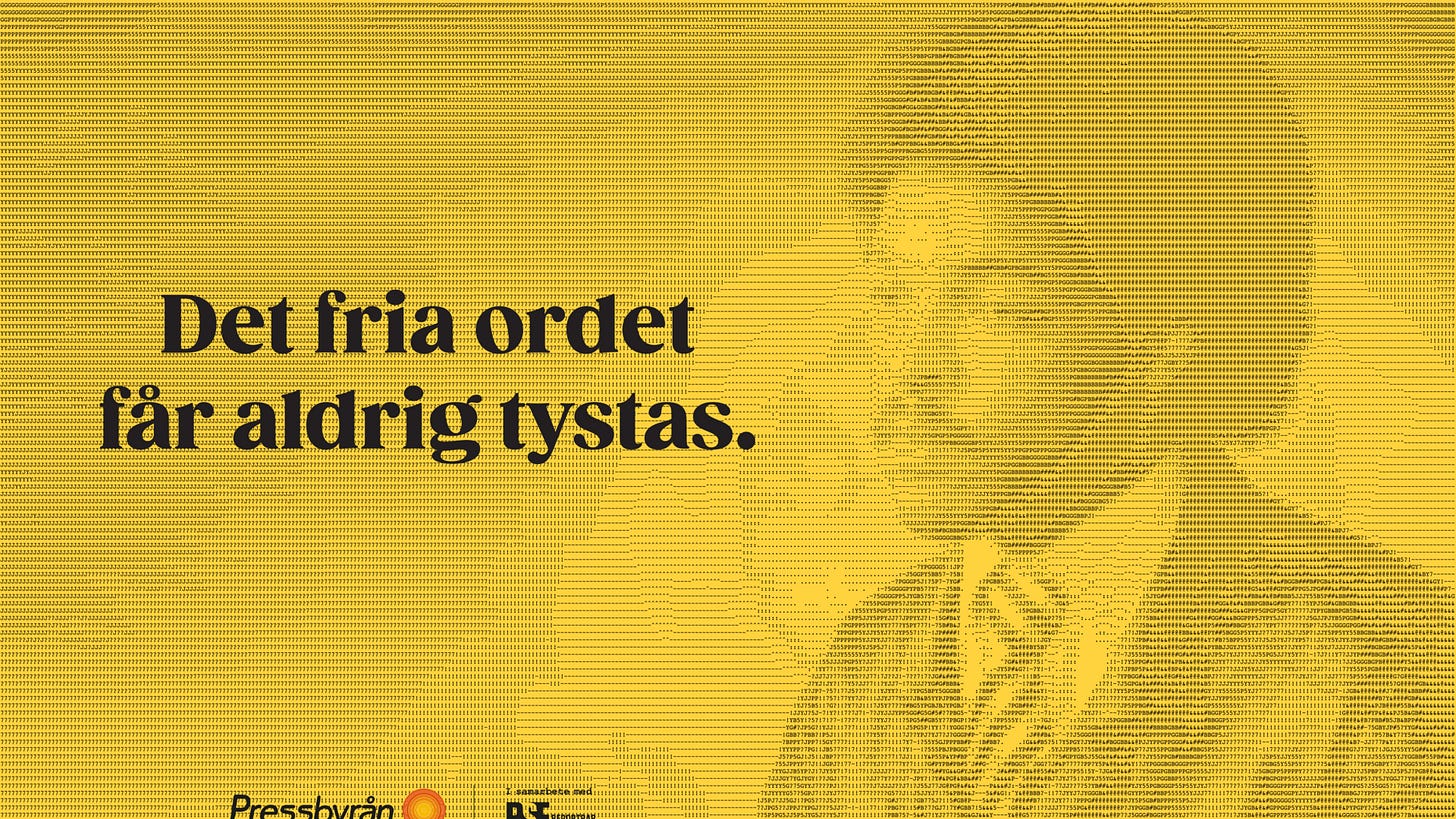
You can read more about the much-debated text and how it was generated here
Pressbyrån and Reporters without Borders, Sweden issued a joint statement, explaining their rationale behind the project.
PRESS RELEASE
Using ChatGPT-4, Pressbyrån and RSF Sweden have recreated Dawit Isaak’s journalistic prose in an article highlighting the importance of press freedom in an age when it is more important than ever before. Thanks to a collaboration with the national newspaper Expressen, one of Sweden’s leading news dailies, the article will also be published digitally and in the paper’s print edition on the 3rd of May.
“At Pressbyrån, we have worked for more than one hundred years to bring the free press to people all around Sweden, so highlighting the importance of press freedom today is one of the many ways we can nurture that legacy. Using AI felt like a highly relevant and exciting way to shine a light on this critical topic. We have also been very keen to involve and include Dawit Isaak’s family, who have given their permission for the project,” says Lennart Schultz, Marketing and Communications Manager at Pressbyrån and Reitan Convenience Sweden.
The article considers the importance of free speech. It is based on a dataset containing up to as many as 36,000 words written by Dawit Isaak in both published and censored articles. The material was collected with the help of Reporters Without Borders and fed into an AI platform. Based on a prompt instructing the AI to write an article with the same tone, style and qualities as those which characterize the work of Dawit Isaak, the article was produced and continuously reviewed by Dawit’s family and journalists who are very familiar with his texts and his journalistic work.
“There is a lot that can be said about AI and the huge challenges it poses in terms of press freedom, for example, but being able to return the voice of a journalist who has been imprisoned and gagged for almost twenty-two years felt huge. No other journalist in the world has been imprisoned as long, and yet today we can hear his voice,” says Erik Halkjaer, Chairman of RSF Sweden.
Human Rights Watch has issued a special report on the complex challenges of AI - Pandora’s Box: Generative AI Companies, ChatGPT, and Human Rights
Dawit Isaak Who?
The longest imprisoned journalist in the world remains virtually unknown and strangely invisible
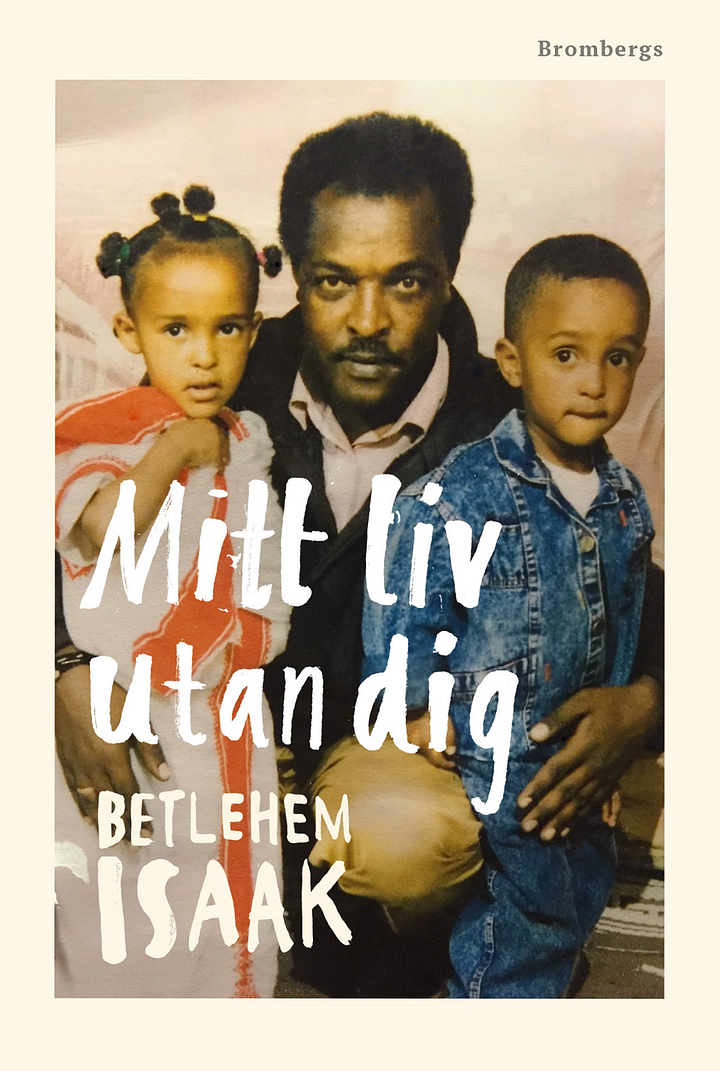
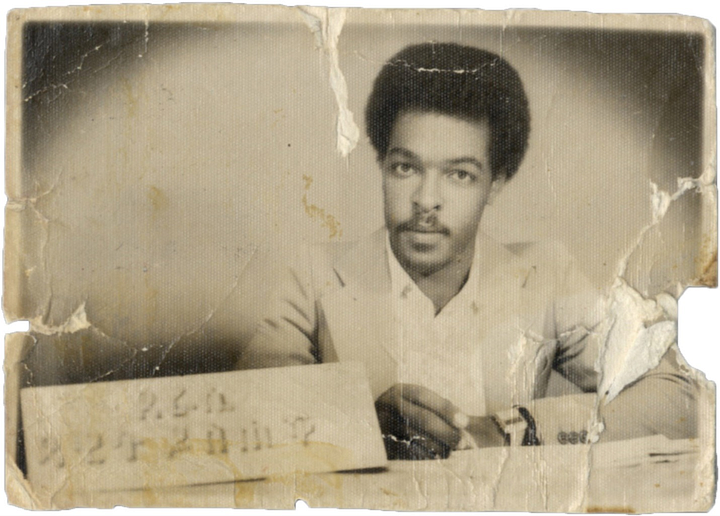
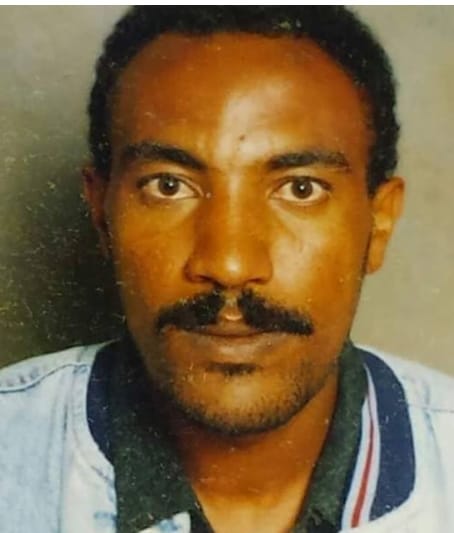
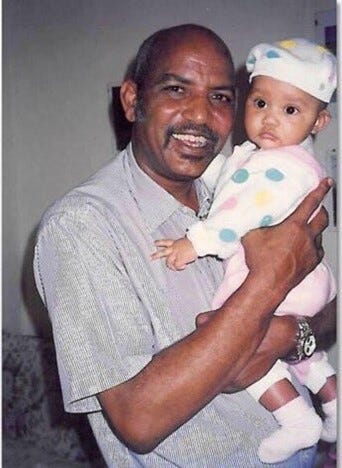
#Eritrea's secret prisons hold one of the longest-imprisoned journalists in the world, Swedish-Eritrean journalist Dawit Isaak. His whereabouts and physical condition have been unknown for 18 years.
By now, broad awareness should exist of the horrendous crimes committed by the Eritrean regime against Dawit Isaak. Instead, the man who is one of the longest-imprisoned journalists in the world remains virtually unknown and strangely invisible, both at home and abroad. The same is true for his fellow imprisoned journalists and thousands of other Eritreans. It is time for the world to finally notice and to hold the Eritrean regime accountable for its crimes.
Read the full article at Inkstick Media.
Sofia Berhane, Dawit Isaak’s wife, writes an open letter to Eritrea’s President Isaias Afewerki
Dawits fru Sofia skriver till Isaias Afewerki freedawit.com
The other week, Sofia Berhane, Dawit Isaak's wife, wrote a letter to Eritrean President Isaias Afewerki with the hope that she will receive a sign of life from her husband. The letter has so far gone unanswered but is now published in Expressen.
English Translation
Your Excellency -
21 years ago, my husband Dawit Isaak was imprisoned in Asmara. During all these years I have not been allowed to meet my husband nor have any contact with him. We share three children together, the twins Bethlehem and Yoran and our youngest daughter, Danait.
They were small children when their father was arrested and taken away and I have taken care of them alone during their whole upbringing. The feeling of missing my husband and the children’s’ dad has been enormous. The children are now adults, the two oldest have started a family and Dawit has two grandchildren who have never met their grandfather. My strongest wish is to reunite with my husband, or at least be able to get a sign of life from our beloved Dawit, to write a letter or talk to him on the phone.
I appeal to you, Mr. President, that you will give me that opportunity. As you understand, these 21 years have left very deep marks in my life and in the lives of the children.
Sincerely,
Sofia Berhane
ICC Chief Prosecutor Karim Khan delivers 2023 Elie Wiesel Distinguished Lectureship in Human Rights
May 4, 2023
“Our planet is in such pain and anguish and too many of us move as if it is of little consequence. … We need more than words and laws, we need justice.”
The Raoul Wallenberg Centre for Human Rights (RWCHR) in partnership with the University of Ottawa's Faculty of Law and its Human Rights Research and Education Centre.
ICC Chief Prosecutor Karim Khan shared his vision for the future of global justice under the Rome Statute and how to create a more just world for all, anchored in the rule of law.
On the need for a meaningful activism
“Talk is cheap - action is what is difficult - and this is a time when collectively need to work together in partnership to talk less and deliver more.”
On the duty to resist
“Everybody must have a duty, not only a right, a DUTY to speak up and speak out and act as friends of humanity.
On the need for empathy and the worth of every individual
“We must have kindness of heart for all communities ... Raise our voice against injustice … Everyone can make a difference.
The OSS Society Commemorates the 79th Anniversary of D-Day June 7, 2023
The OSS Society is hosting a reception on Capitol Hill on June 6, 2023, to commemorate the 79th anniversary of D-Day and the contribution made to the invasion’s success by U.S. intelligence and American & Allied special forces.
Advance registration is required by clicking on this registration link:
Join The OSS Society for a screening of its award-winning short documentary, "Operation Overlord: OSS and the Battle for France." This film tells the story of Allied special forces whose daring exploits for D-Day changed the course of World War II. This event is by invitation only and is non-transferable.
"The film is a testimonial to the valor of the men and women who had fought in Europe and the Pacific during World War II. It celebrates the 75th anniversary of D-Day, recognizing those brave Americans and allies who sacrificed so much to fight Nazism and fascism. We were reminded that the Greatest Generation went to war because it believed that we were the good guys — that wherever there was oppression, tyranny or despotism, America would be there. We would be there because freedom mattered. We would be there because the world needed us and if not us, then who?”
—Admiral William H. McRaven, USN (Ret.)
In case you missed it …
Mother of murdered journalist fights to free American hostages - Christiane Amanpour interviews Diane Foley, President of the James Foley Legacy Foundation
Why is the family of Russian opposition politician Vladimir Kara-Murza seeking “wrongfully detained” status for him in the U.S.? Because the U.S. government currently has one of the most effective foreign hostage recovery teams in the world.
That was not always the case. Watch Christiane Amanpour‘s interview with Diane Foley, mother of American journalist Janes W. Foley, who was kidnapped and brutally executed by members of ISIS in Syria in 2014.
Over the past decade, Diane Foley and the James Foley Legacy Foundation have played a crucial role in reshaping the U.S. government’s hostage policy. Their mantra: that a country’s wealth lies in its individual citizens, and journalists in particular who risk their lives so we can make informed decisions.
https://www.cnn.com/videos/tv/2023/05/04/amanpour-diane-foley-hostages.cnn
“We were really pretty much on our own” when her son was kidnapped in 2012, Diane says. “I don’t think our government knew what to do with me. I was an annoyance, there was no structure to deal with us. We are light years ahead” today in government engagement. “
The Art of Decolonization - How Eastern European art became the latest battlefront in countering Russian imperialism
https://meduza.io/en/feature/2023/04/27/the-art-of-decolonization
Since 2018, John Stienen has been researching mortality in psychiatric institutions in the Netherlands during the Second World War, especially at an institution in Zutphen and regarding the deportation of almost 1,200 patients and staff from the Apeldoornsche Bosch, the largest Jewish mental institution in The Netherlands during World War Two.
• John M. Stienen. ‘Captivity and Death Among the Serbian Prisoners of War Who Passed Through the Netherlands During the Great War’. In: Jelica Novaković-Lopušina et al. (eds.) Drie decennia Belgradose Neerlandistiek : cultuurcontacten tussen Zuidoost-Europa en de Lage Landen. Belgrade: University of Belgrade, Faculty of Philology, Dutch Language, Literature and Culture Department. 2018: 196-219.
• John M. Stienen. ‘Ukrainian Nationalism as Seen through Dutch Eyes : The Case of the Dutch Officers Helped by UPA in World War II’. In: Religion, state, society and identity in transition Ukraine edited by R. van der Laarse, M. Cherenkov, V. Proshak and T. Mykhalchuk. Oisterwijk: Wolf Legal Publishers, 2015: 203-218.
Ari Kaplan’s background in data includes having been President of the worldwide Oracle users group when they acquired MySQL, Java, and Peoplesoft. He traveled the world with McLaren Formula 1, assisting the racing strategy team to bring AI models to production. Ari was named Caltech’s “Alumni of the Decade”, Crain Chicago’s “40 Under 40”, and IBM’s “Data Science Celebrity”.













